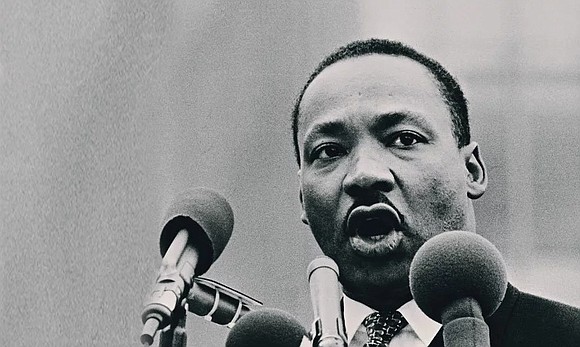Navigating Modern Challenges with Dr. Martin Luther King, Jr.'s Timeless Wisdom
Jo-Carolyn Goode | 1/10/2024, 12:34 p.m.
In his iconic "I've Been to the Mountaintop" speech on April 3, 1968, Dr. Martin Luther King, Jr. emphatically declared that grappling with racial, social, and economic injustices was a matter of survival. Fast forward fifty-six years, and this assertion still resonates powerfully today. Like King, we must not resort to violence to handle the issues of the day but must err on the side of peace to be nonviolent.
"We have been forced to a point where we are going to have to grapple with the problems that men have been trying to grapple with throughout history, but the demands didn't force them to do it. Survival demands that we grapple with them. Men for years now have been talking about war and peace. But now, no longer can they just talk about it. It is no longer a choice between violence and nonviolence in this world; it's nonviolence or nonexistence. That is where we are today."
Dr. King believed that violence clouded the ears of those who needed to hear the message that was portrayed.
He recognized that survival demanded a confrontation with the deep-rooted problems that humanity has struggled with throughout history. The urgency to grapple with these issues has only intensified over time. His words echo today, as we continue to face the pressing need for resolution in the realms of racial, social, and economic justice.
In emphasizing nonviolence as the only viable path forward, Dr. King highlighted that resorting to violence would only obscure our message. Acts of violence, he argued, distract from the substantive change we seek and instead captivate attention through destructive means. Nonviolence, in King's view, was not just a moral stance but a strategic necessity to ensure that our demands are not only heard but also answered. Nonviolence is the only way to guarantee that demands would be heard and answered.
To embody the principles of nonviolence championed by Dr. King, one actionable step is to actively engage in the democratic process. Participation at the ballot box is crucial, as it empowers us to elect representatives who understand our experiences, share our perspectives, and advocate for our best interests.
To honor Dr. King's legacy and contribute to positive change, make your voice heard at the ballot box. Voting is a tangible and impactful way to shape the leadership that represents us and addresses the challenges we face. By electing individuals who mirror our diversity and champion our causes, we move closer to realizing the dream of a just and equitable society.
Dr. Martin Luther King, Jr.'s wisdom transcends time, urging us to confront injustices with a commitment to nonviolence. Dr. King’s teachings serve as a guide for fostering positive change. By embodying the principles of nonviolence and actively participating in the democratic process, we can honor Dr. King's legacy and contribute to a more just and inclusive society.





